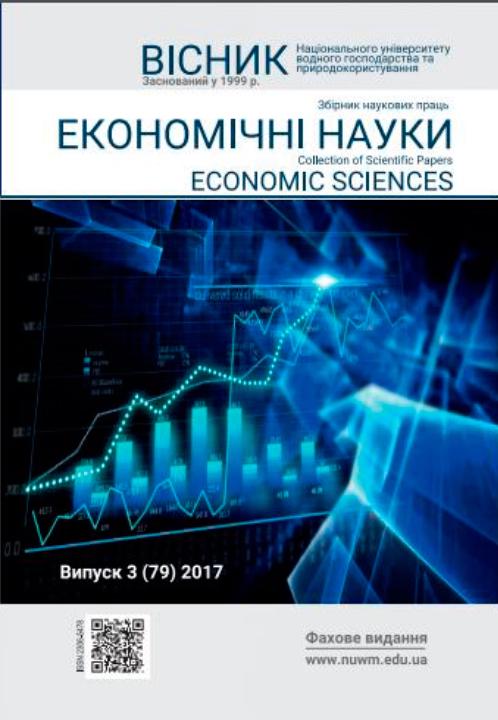ANALYTIC REVIEW OF NEEDS IN SOCIOCULTURAL DISCOURSE
Keywords:
needs, human, consumption, cosmocentrism, theocentrism, anthropocentrism, rationalism, moral, «economic person».Abstract
The analytic and research explication of theoretical and methodological interpretations of human needs was carried out in the article. The peculiarities of formation were analysed and the main tendencies concerning comprehension of this complex socioeconomic and psychological phenomenon from ancient times to rationalistic and epistemological searches of the New Age era were revealed. The conducted analytic review of theoretical and methodological concepts for understanding the problematics of needs of the representatives of different epochs makes possible the determination of cosmocentric, theocentric, anthropocentric and rationalistic approaches that accompanied the idea of the peculiarity of the formation of the researched phenomenon. In particular, the cosmocentric principles of the ancient worldview, subjecting the human reflection as a microcosm, which is a component of a large macrocosm, become a significant determinant of the priority of spiritual needs over the material, the fair balance of intelligent and not intelligent needs, personal interests and social ones. In the Middle Ages, the idea of God as a moral absolute sets the vector of distinguishing a number of spiritual and moral needs, whichbecome significant in relation to Divine being. And hence the requirement to transform the primary needs into the needs of a higher level of human existence, associated with the achievement of spiritual virtues, directed to the highest world of religious meanings and values. The anthropocentric approach of the Renaissance in the questions of explication of the phenomenon of needs makes it possible to rethink them from the positions of neutralizing the opposition of the physical and spiritual, and through the prism of establishing the image of the «universal person», witnesses individual self-realization in the forms of realizing all sorts of needs and desires with the rejection of any external obstacles: moral, legal, political . Then, in the New Times, a person’s understanding of her cognitive capabilities and, at the same time, increased optimism about the needs for knowledge and redevelopment and the improvement of society on a reasonable basis were researched. It was defined that the needs accumulate the essential characteristics of desires, aspirations and interests of the person, expressing the qualitativedimension of the economic and spiritual life of society at a certain stage of development of the corresponding cultural and historical epoch.References
Аристотель. Нікомахова етика / Аристотель ; [пер. з давньогрец. В. Ставнюк]. – К. : Аквілон-Плюс, 2002. – 480 с.
Біленко Тетяна. Філософія Середніх віків: словник-довідник / Тетяна Біленко. – Дрогобич. : Видавничий відділ Дрогобицького державного педагогічного університету імені Івана Франка, 2014.– 124 с.
Декарт Р. Метафізичні розмисли / Рене Декарт ; [пер. з фр. З. Борисик та О. Жупанський]. – К. : Юніверс, 2000. – 304 с.
Дильс Г. Досократики / Г. Дильс ; [пер. с древнегреч. А. Маковельский]. – Мн. : Харвест, 1999. – 784 с. – (Классическая философская мисль).
Лосев А. Ф. Эстетика Возрождения / А. Ф. Лосев. – М. : Мысль, 1978. – 623 с.
Лурье С. Я. Демокрит. Тексты. Переводы. Исследования / С. Я. Лурье. – Л. : Наука, 1970. – 664 с.
Платон. Государство / Платон ; [пер. с греч. А. Н. Егунов]. – Сочинение : в 3 т. / Платон. – М., 1976. – Т. 3, ч. 1. – С. 89–454. 8. Роттердамский Эразм. Похвальное слово Глупости / Эразм Роттердамский ; пер. и коммент. П. К. Губер. – М.-Л. : Akademia, 1931. – 22430. – (Сокровища мировой литературы). 9. Татаркевич Владислав. Історія філософії. Філософія Нового часу до 1830 року / Владислав Татаркевич ; [пер. з пол. Я. Саноцький, О. Гірний]. – Львів : Свічадо, 1999. – Т. 2. – 352 с. 10. Флоровский Г. В. Восточные отцы V–VIII веков / прот. Георгий Флоровский. – 2-е изд. – М. : Паломник, 1992. – 260 с.

